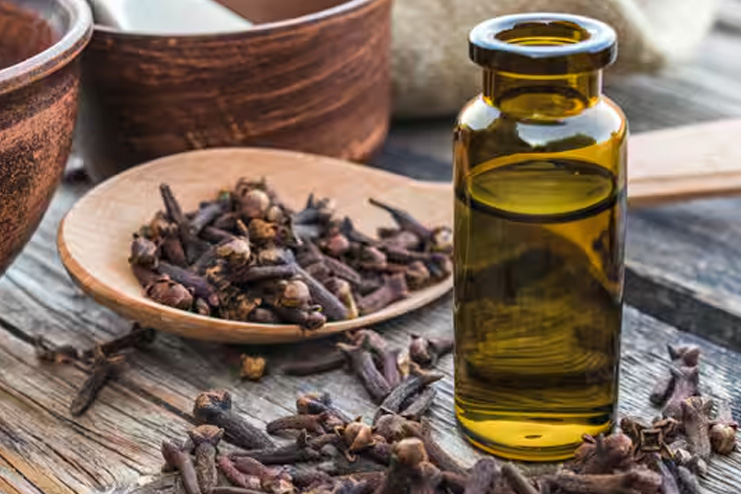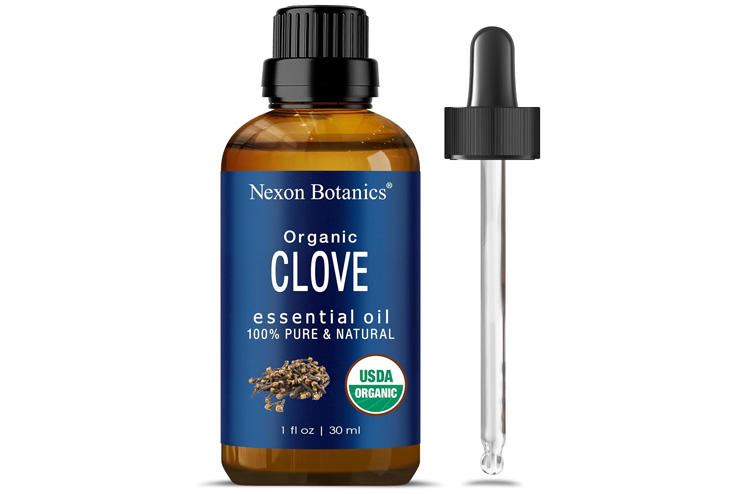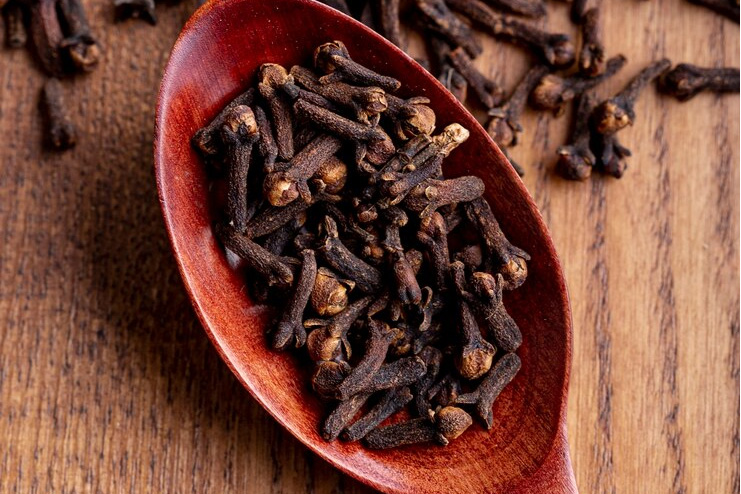Affiliate Disclaimer
Some links in this article are affiliate links. We may earn a small commission if you make a purchase through these links, at no extra cost to you. We only recommend products we find useful to our readersToothaches can affect people of all ages, and are frequently brought on by dental infections, gum disease, or cavities. The agonizing discomfort might affect everyday activities and general health. Although many people seek relief from pain with over-the-counter medications, interest in alternative therapies is rising. Cloves are particularly notable among other natural remedies due to their exceptional efficacy. Cloves have been used for generations to treat tooth pain and prevent oral infections because of their well-known analgesic and antibacterial qualities. This natural remedy is an excellent substitute for prescription drugs because it offers immediate comfort and encourages improved dental health.
Understanding Toothaches
A toothache is a pain or a discomfort in or around a tooth, typically due to conditions associated with the teeth. Abscesses in the teeth, cavities, gum disease, broken teeth, and exposed tooth roots are some of the most common causes of dental caries. One of the most common causes of inflammation and pain is tooth decay, caused by bacterial infections related to tooth decay. When you are experiencing a severe toothache, it is essential to seek the advice from a professional dentist because it might indicate an underlying condition that may require immediate attention.
Toothaches are a typical kind of dental discomfort. According to the American Dental Association, approximately forty percent of adults experience some tooth discomfort annually. According to the Global Burden of Disease Study, mouth disorders, such as the tooth decay and gum disease, affect around 3.5 billion individuals worldwide. This data highlights how common dental health issues are, and how important it is to handle these issues promptly and efficiently.
Introduction to Cloves

The clove tree, also known as Syzygium aromaticum, is indigenous to the Maluku Islands in Indonesia. Cloves are fragrant flower buds produced by this species. Cloves have been utilized for thousands of years in traditional medicine, and have been extremely valuable due to their numerous medicinal properties, particularly in Ayurvedic and Chinese medicine.
Throughout history, cloves have played an essential role in the spice trade routes, and been traded freely between different civilizations because of the many culinary and medical benefits they offer. Ancient Egyptians used cloves for embalming, and Arab traders brought cloves to Europe throughout the Middle Ages.
Cloves serve not only as excellent aids for oral health but are also valued for their utility in the culinary arts, perfumery, and even as a natural insect repellent.
The Science Behind Cloves for Toothaches
A substantial body of evidence derived from scientific studies supports the usefulness of cloves in alleviating toothaches.
Cloves are among the most effective natural remedies for toothaches because they contain eugenol, a molecule well-known for its powerful analgesic and anti-inflammatory qualities. It essentially helps numb the affected area and lowers inflammation.
Eugenol also blocks the formation of prostaglandins, which are molecules responsible for causing pain and inflammation in the body. To alleviate the agony associated with toothaches, eugenol effectively numbs the affected area by inhibiting the pain signals. Its anti-inflammatory properties also help to reduce swelling and expedite the healing process.
According to research published in the Journal of Dentistry, those with pulpitis—a condition characterized by tooth pulp inflammation—saw a considerable reduction in pain while using eugenol products. According to the findings of yet another study published in the Journal of Oral Rehabilitation, clove gel is an effective treatment for gingivitis, which is characterized by pain and inflammation.
These findings illustrate the promise of cloves as a natural alternative to conventional treatments and highlight the scientific basis behind the historic usage of cloves for the relief of toothaches.
6 Effective Ways to Use Cloves for Toothaches:
1. Clove Oil:

The high concentration of eugenol in clove oil makes it an effective treatment for toothaches. Dilute a few drops of clove oil in a carrier oil such as olive oil. Using a cotton swab, apply a few drops of the diluted clove oil to the affected tooth. Avoid putting the product directly onto gums to prevent irritation. To evaluate the sensitivity of the product, begin with a tiny amount and modify it as necessary. Excessive clove oil consumption can result in nausea and other undesirable responses, it is therefore recommended to use clove oil carefully and avoid ingesting it. Before using, it is essential to seek the advice of a dentist, mainly if you are pregnant or have any pre-existing health concerns.
2. Clove Tea:

Steep several whole cloves in boiling water for five to ten minutes to prepare a clove tea at home. Strain the tea and take a few leisurely sips. Honey or lemon can be added to improve its flavor. Slowly sip the tea while it is still warm to achieve the best results. Not only does drinking clove tea assist in curing toothache, but it also has a calming effect on the throat and encourages relaxation. Limit your consumption to one to two cups per day to avoid potential adverse effects like heartburn or stomach discomfort.
3. Clove Compress:

Dilute clove oil with water and soak a cotton ball or rag to create a compress containing cloves. Apply the compress directly to the area of the gums or the tooth that is impacted, and leave it on for ten to fifteen minutes. Cloves can alleviate both pain and edema because of their anti-inflammatory and warming effects. To get relief throughout the day, repeat as necessary. To prevent burns, ensure the compress is not excessively hot, and stop using immediately if irritation occurs.
4. Chewing Cloves:
Chewing on whole cloves causes the essential oils contained within them to be released, which provides instant relief for toothaches. Place a few cloves between your teeth and bite down gently to release the oils within them. It is essential to exercise caution when chewing cloves because they are powerful and have the potential to hurt the gums and tongue. The cloves should be spat out after a few minutes of chewing. This approach not only has the effect of numbing the affected area, but it also helps to improve oral health and maintain fresh breath.
5. Clove Mouthwash:
Buy one, or make a simple homemade mouthwash by steeping cloves in boiling water for fifteen to twenty minutes. Strain the mixture and allow it to cool.Use it like traditional mouthwash by swishing it around your mouth for thirty to sixty seconds before spitting it out.
Freshening the breath, killing bacteria, and reducing inflammation are all benefits of clove mouthwash. It is important to remember that swallowing the mouthwash can result in nausea and other digestive disorders. Use it one to two times per day as a component of your daily oral hygiene routine.
6. Clove Paste:

Eugenol, the analgesic with antibacterial qualities present in cloves, is what makes clove paste so efficient at relieving toothaches. You can increase the paste’s efficiency by adding a few drops of tea tree oil or a small amount of crushed garlic, both of which have additional antibacterial properties. Use a spice grinder or mortar and pestle to finely grind five to six whole cloves into a powder. Mix the clove powder with a small amount of water or olive oil to make a thick paste. Apply a small amount of the clove paste directly to the afflicted tooth and gum region using a clean cotton swab or your fingers. Leave on for ten to fifteen minutes, then rinse your mouth with warm water. For best results, repeat twice daily or as needed.
Side Effects of Clove Oil for Toothaches
Cloves offer more than their fair share of benefits, but it is important to use cloves with caution and in moderation, as cloves can be potent. Some common side effects of cloves for toothache include:
- A possible allergic reaction, which is characterized by hives, redness, and inflamed skin. If those symptoms are visible, it is necessary to consult a doctor or stop using cloves immediately.
- Individuals who tend to already suffer from hypoglycemia are advised to steer clear of clove oil because it imposes further blood glucose-lowering properties.
- Clove oil may induce lactic acidosis, often characterized by muscle and tissue numbing, consistent pain, and dizziness. If you experience something similar, it is good to discontinue consumption.
- Clove oil has anticoagulant properties associated with possible blood thinning. Be cautious about the amount you consume.
When to Seek Professional Help

While cloves can provide some comfort for toothaches in the short term, there are certain situations in which the assistance of a professional dentist is required:
Consistent Pain: If the toothache persists or worsens despite the use of cloves or other home remedies, it may be a sign that a professional evaluation and treatment are necessary to check for an underlying dental issue.
Swelling or Infection: A severe infection or abscess may cause swelling around the damaged tooth, fever, or evidence of disease such as pus discharge. If you experience these symptoms, you should seek emergency dental assistance.
Damaged Tooth: If the tooth is broken, cracked, or damaged, a dentist should examine the degree of the damage and propose suitable treatment to prevent further difficulties.
Bleeding Gums: Persistent bleeding gums, especially during brushing or flossing, may suggest gum disease or other oral health conditions that require professional assistance.
Even if you only get toothaches occasionally, it is essential to visit the dentist regularly for preventative care. Dentists can recognize and address potential issues at an early stage, assisting in maintaining optimal oral health and preventing more significant problems in the future. Remember that timely expert care is essential for maintaining dental health over the long term.
Conclusion
Cloves are a valuable remedy for toothaches because of their analgesic and anti-inflammatory qualities, mainly attributed to eugenol. We examined six viable applications for cloves each offering distinct advantages. Even though cloves can provide some relief in the short term, it is necessary to seek a competent dentist’s assistance for severe or persistent toothaches.
Routine dental checkups are required for preventative care and the early detection of dental problems. When you use cloves as part of your dental hygiene routine, you can complement the treatment you receive from a professional and improve your oral health. Try these approaches today to emphasize dental care for long-term wellness.
References
- https://royaloakfamilydental.com/home-remedies-for-toothache-relief/
- https://carrumdownsdental.com.au/benefits-of-cloves-for-toothaches/
- https://www.dentistryofwestbend.com/9-ways-to-soothe-a-toothache-at-night/
- https://www.healthline.com/health/dental-and-oral-health/home-remedies-for-toothache
- https://zeenews.india.com/web-stories/health/6-ways-to-use-cloves-for-toothache-2667908
- https://www.webmd.com/oral-health/home-remedies-toothache
- https://www.verywellhealth.com/the-use-of-clove-oil-in-dentistry-1059310
- https://www.medicalnewstoday.com/articles/326133
- https://www.healthline.com/health/clove-oil-toothache
- https://www.wikihow.com/Use-Clove-Oil-for-Tooth-Pain
- https://www.medicalnewstoday.com/articles/321256
- https://www.ndtv.com/food/cloves-for-toothache-a-natural-remedy-for-tooth-pain-1949745
- https://www.stylecraze.com/articles/cloves-to-take-care-of-toothache/
- https://www.1mg.com/articles/6-natural-remedies-to-get-rid-of-that-nagging-toothache/
- https://www.smilemountainview.com/successful-home-remedies-for-toothaches/
-
Aug 2019Written by Somapika D
-
July 2024Edited by Ankita
In this Article




















